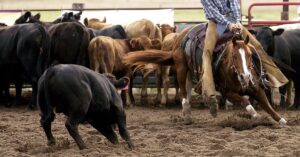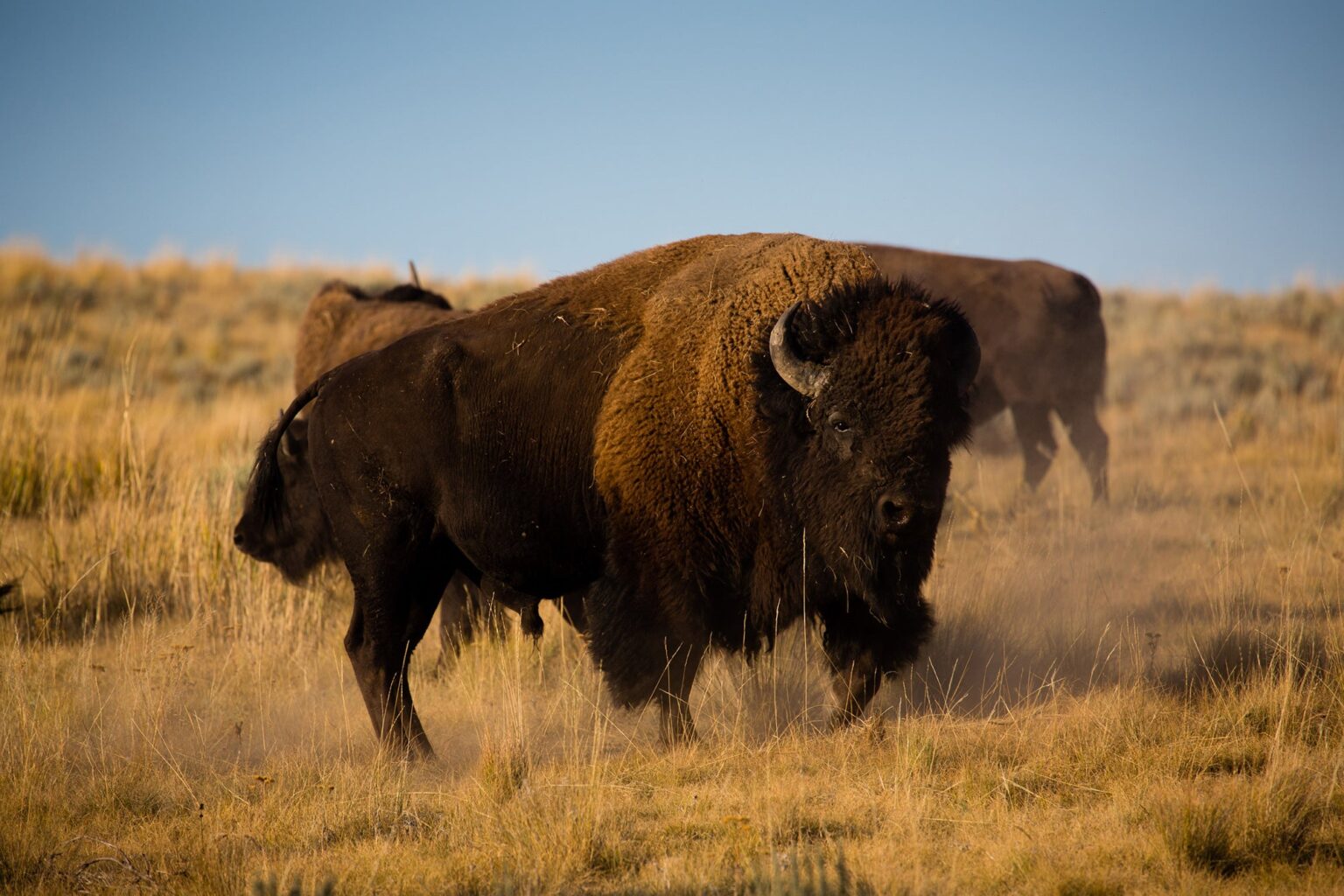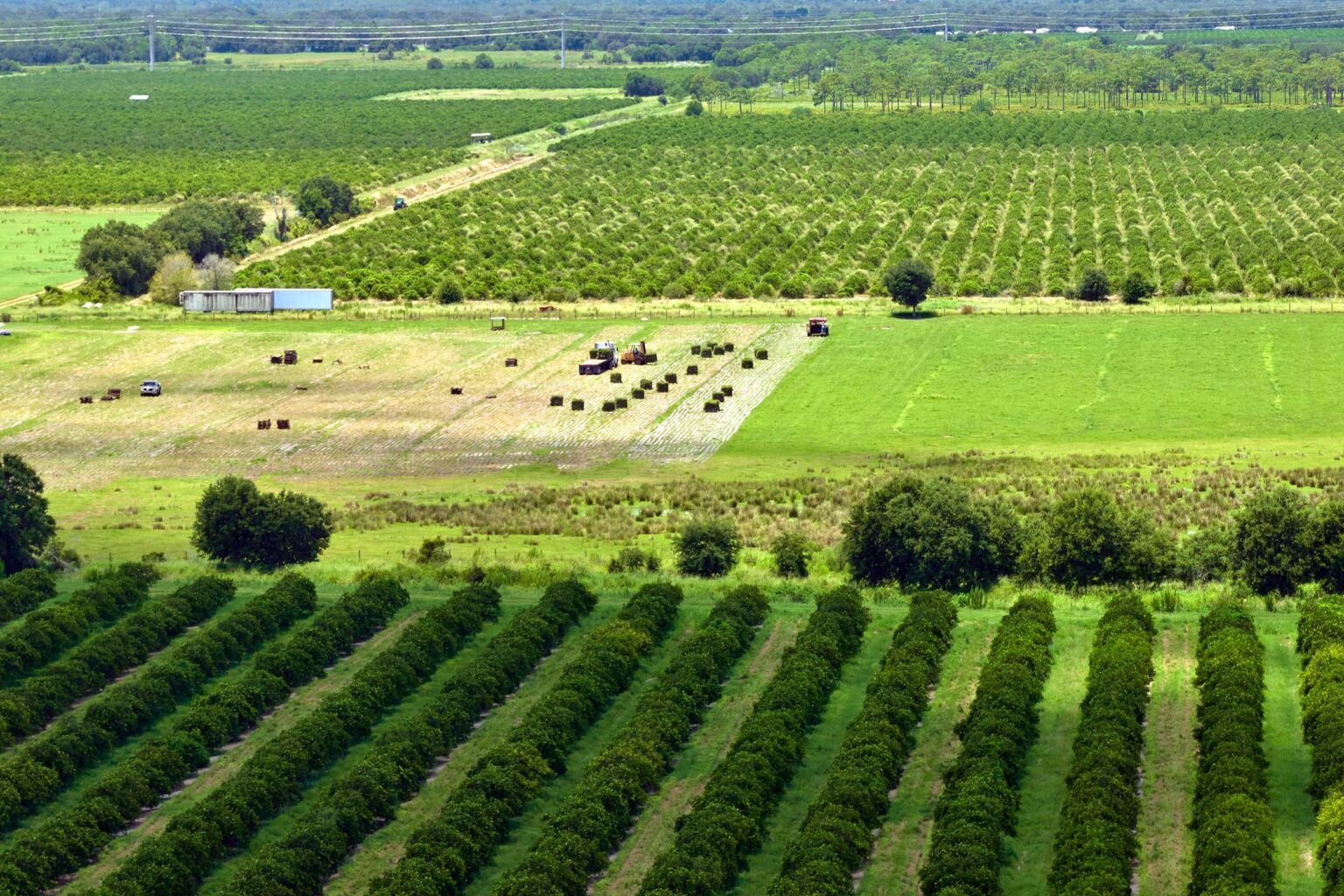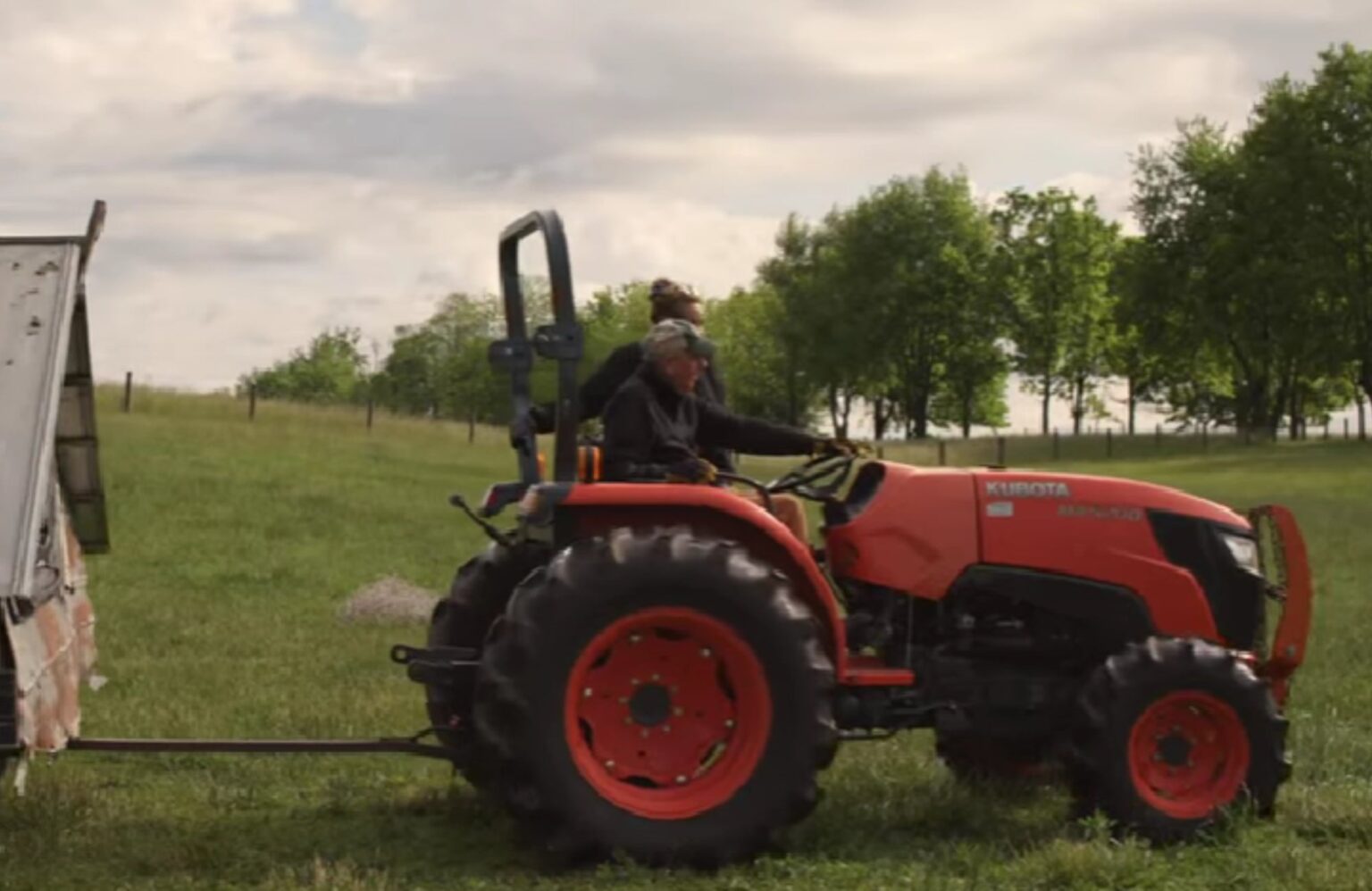Subscribe to Updates
Get the latest agriculture news and updates directly to your inbox.
Author: staff
“I would like to say, to begin with, that you’re learning about a 92-year-old undiagnosed attention-deficit hyperactivity redneck rancher with a sense of humor. And we can go from there,” explained Delbert Trew of Alanreed, Texas. Trew was born June 19, 1933, on his family farm in Perryton, in the middle of both the Dust Bowl and the Great Depression. That year alone, more than 100 dust storms tore across the Perryton area, with that June being among the worst months ever recorded. Trew, a true Texas agriculturalist, has spent his life surrounded by the brutal realities and the rich…
Shortly past 8:30 a.m. CT, March corn was unchanged at $4.43½ per bushel. January soybeans were up 2½¢ at $11.18¼ per bushel. March CBOT wheat was down 5¼¢ at $5.33 per bushel. March KC wheat was down 4¾¢ at $5.24¾ per bushel. March Minneapolis wheat was down 3¼¢ at $5.73. This morning, USDA announced new export sales: Colombia is buying 100,800 metric tons of corn for the 2025/2026 marketing year.Mexico is buying 392,500 metric tons of corn for the 2025/2026 marketing year. Shortly past 8:30 a.m. CT, January feeder cattle were up $3.55 at $335.40 per hundredweight (cwt). February live…
The most problematic weed species have an unmatched potential to spread. Left unmanaged, both waterhemp and Palmer amaranth can produce up to 1 million seeds per plant, according to Ohio State University Extension. “Thirty years ago, weed control programs would cost $10–15 per acre,” said Josh Putman, a technical marketing manager for BASF. “Today, we are up north of $100 per acre, primarily due to the resistance and competitive nature of a lot of weed species.” Understanding how weeds spread is the first step in building an effective control program and reducing the risk of herbicide resistance. How Weeds Spread…
A new detection of New World screwworm in northern Mexico is raising alarms among animal health officials and border-state producers, even as Texas remains free of confirmed cases. Texas Agriculture Commissioner Sid Miller said the Texas Department of Agriculture was notified by the U.S. Department of Agriculture of a detection in Montemorelos, Nuevo León, Mexico, approximately 120 miles south of the Texas border. The USDA’s Animal and Plant Health Inspection Service confirmed the case in a 22-month-old bovine transported from Veracruz to a feedlot in Nuevo León, according to Miller’s statement. “The New World screwworm is one of the most…
Law enforcement in Cooke County, Texas, is investigating a case of suspected animal cruelty after a bison was unlawfully shot, decapitated, and left on private property south of Lindsay, according to the sheriff’s office. The incident occurred sometime between Nov. 23 and Nov. 26, 2025, on the Neu family’s bison ranch, a property near County Road 301 and FM 3208 (also reported as FM 3108), authorities said. Investigators believe the suspect or suspects removed the animal’s head and left the remaining carcass behind. “I could smell something dead, and I told my wife we needed to go check the fence…
Farmers may soon see short-term financial relief as the Trump administration prepares to roll out a long-discussed “bridge payment” intended to help producers weather ongoing market volatility and prolonged trade uncertainty. Agriculture Secretary Brooke Rollins confirmed during a White House cabinet meeting on Tuesday that the U.S. Department of Agriculture will announce details of the payments next week. While the administration has not yet released the final dollar figure, early estimates from several farm groups suggest the support package could total around $12 billion. Rollins said the aid is designed to provide a financial stopgap as longer-term trade and farm…
AGwagon’s PRORODEO Special Edition is a heavy-duty truck package built to match the realities of ranch, farm, and rodeo life that include long days, rough ground, heavy loads, and the need to stay organized and connected wherever you end up. Created through a partnership with the PRCA, it takes the core AGwagon concept (a purpose-built agricultural truck) and adds rodeo-driven design details from top athletes, along with bold PRORODEO branding throughout the truck. “The AGwagon is the first purpose-built truck specifically designed to meet the rugged demands of agriculture and Rodeo,” says Pat Driscoll, founder and CEO of The Certified…
Just after 10:00 a.m. CT, March corn was down 5¾¢ at $4.44¼ per bushel. January soybeans were down 3¢ at $11.21¾ per bushel. “Futures are again mixed with little clear direction being seen,” said Karl Setzer, partner with Consus Ag Consulting. “Fresh news remains light and this is contributing to the lethargic market action. Our next big influx of data will be next week’s WASDE update, but typically the December report is a quiet one. Month, quarter, and year-end will start to become primary factors in price discovery. Two main points of interest right now are the weather conditions in…
Biological crop protection products are sometimes seen as a potential step for production systems, but experts say the biggest hurdle has been reliability. Growers facing tight spray windows, high disease pressure, and rising input costs need tools that perform consistently across regions, seasons, and application methods. That context is central to Biotalys’ latest milestone: the agtech company announced that the U.S. Environmental Protection Agency has issued final approval for its first biofungicide, EVOCA, a protein-based, precision biocontrol product designed to manage destructive fungal diseases in grapes, strawberries, and hemp. EVOCA is the first product developed using Biotalys’ proprietary AGROBODY technology…
AGDAILY Staff · December 3, 2025 On Giving Tuesday, Carhartt teamed up with Metallica’s All Within My Hands Foundation to support families facing hunger across the country. Together, the partners are making a combined $500,000 gift to Feeding America, helping provide 5 million meals nationwide and reinforcing a shared commitment to step up for communities when it matters most. In addition to the donation, Carhartt released a new short film, “Gatherings,” in honor of the farmers and ranchers whose work keeps America’s holiday traditions going. Part of the brand’s “Making the Holidays Possible” campaign, the film is a reminder that…








:max_bytes(150000):strip_icc()/soybeans-up-2-ceb863b9ff824abba20843ea12c98d69.jpeg)
:max_bytes(150000):strip_icc()/Weedseeds-8191f9b6743641f781f19c1e566dc387.jpeg)


:max_bytes(150000):strip_icc()/Markets-6-Corn-down-13-6079dfe0945d457f88c0730ef35a6f38.jpeg)

